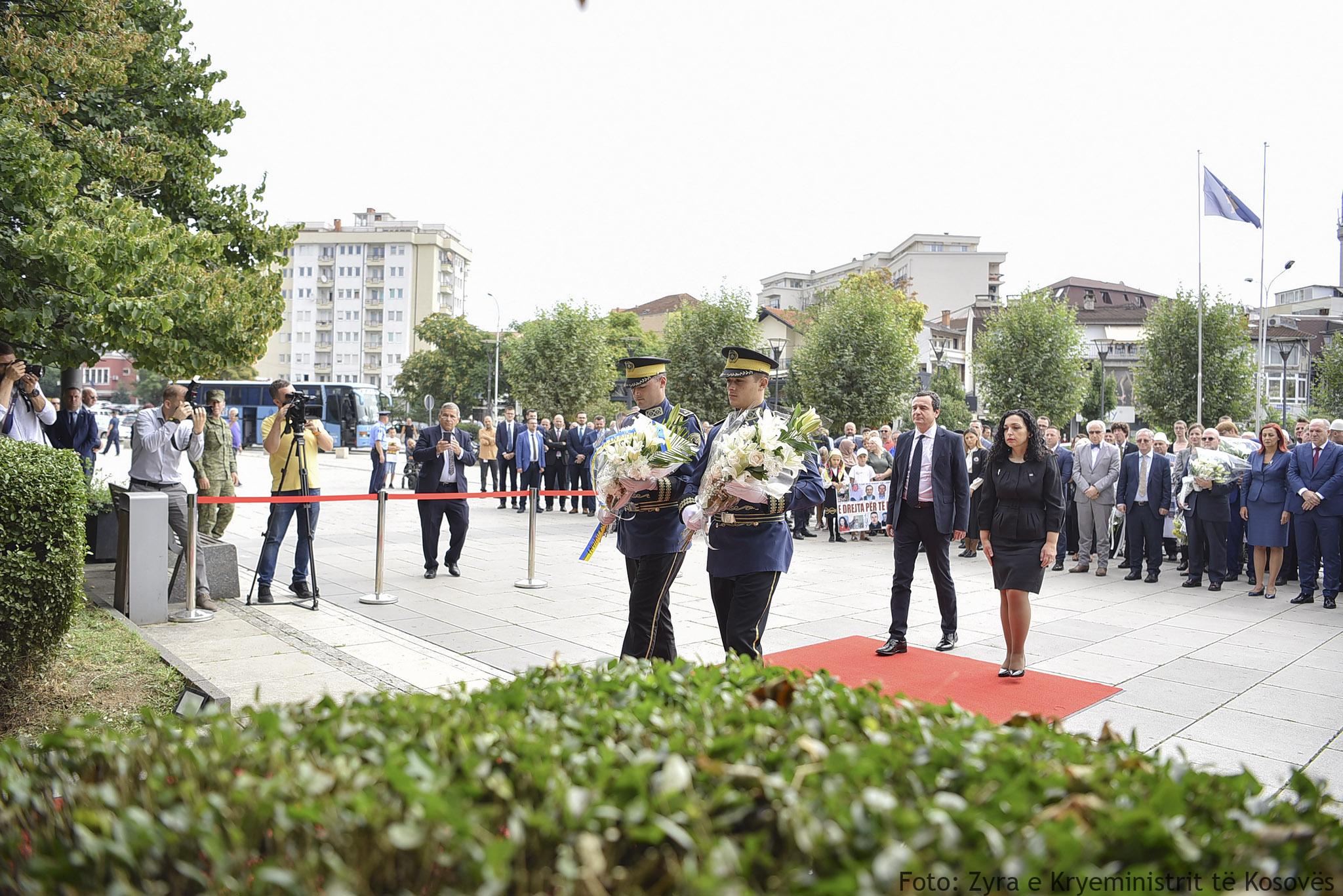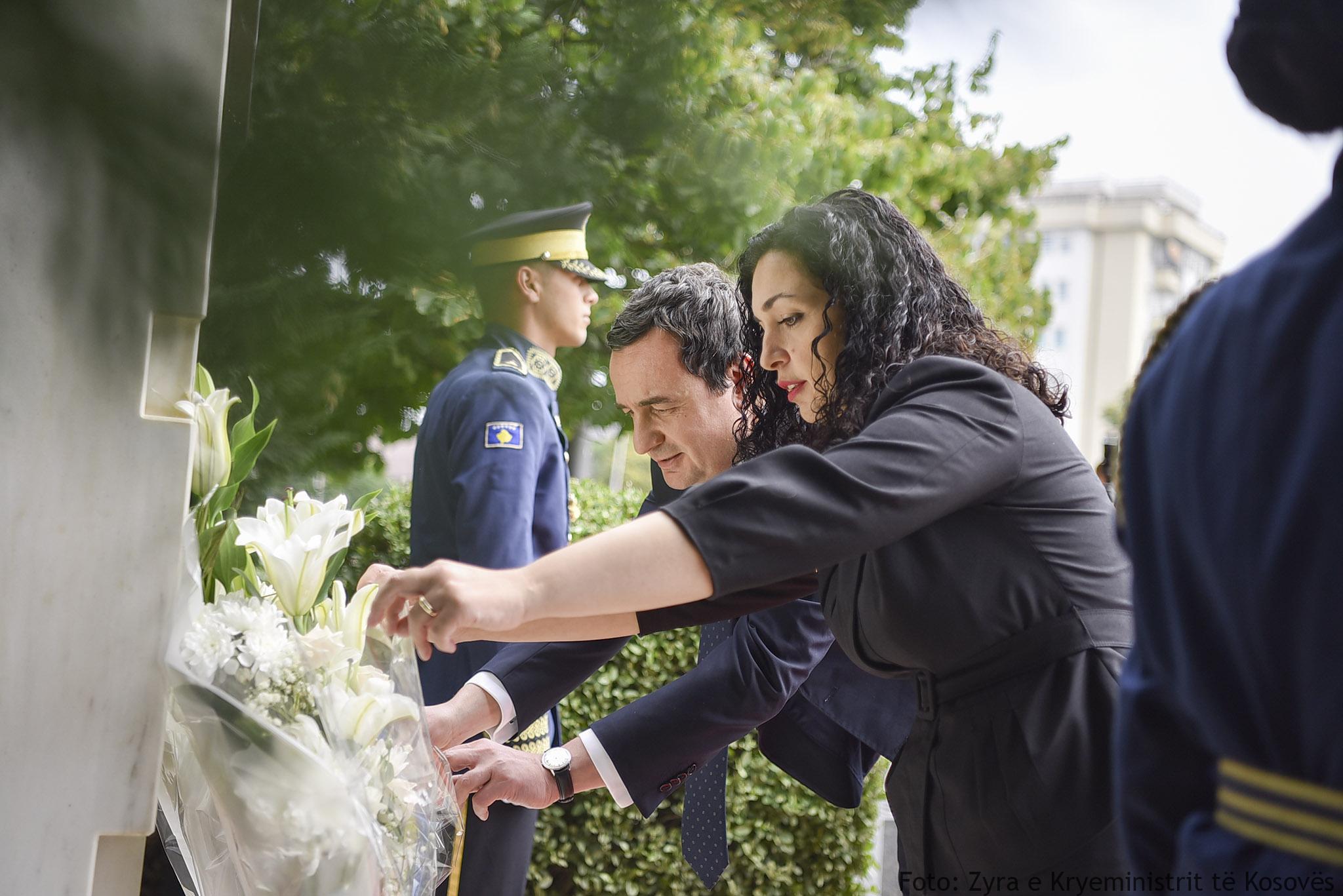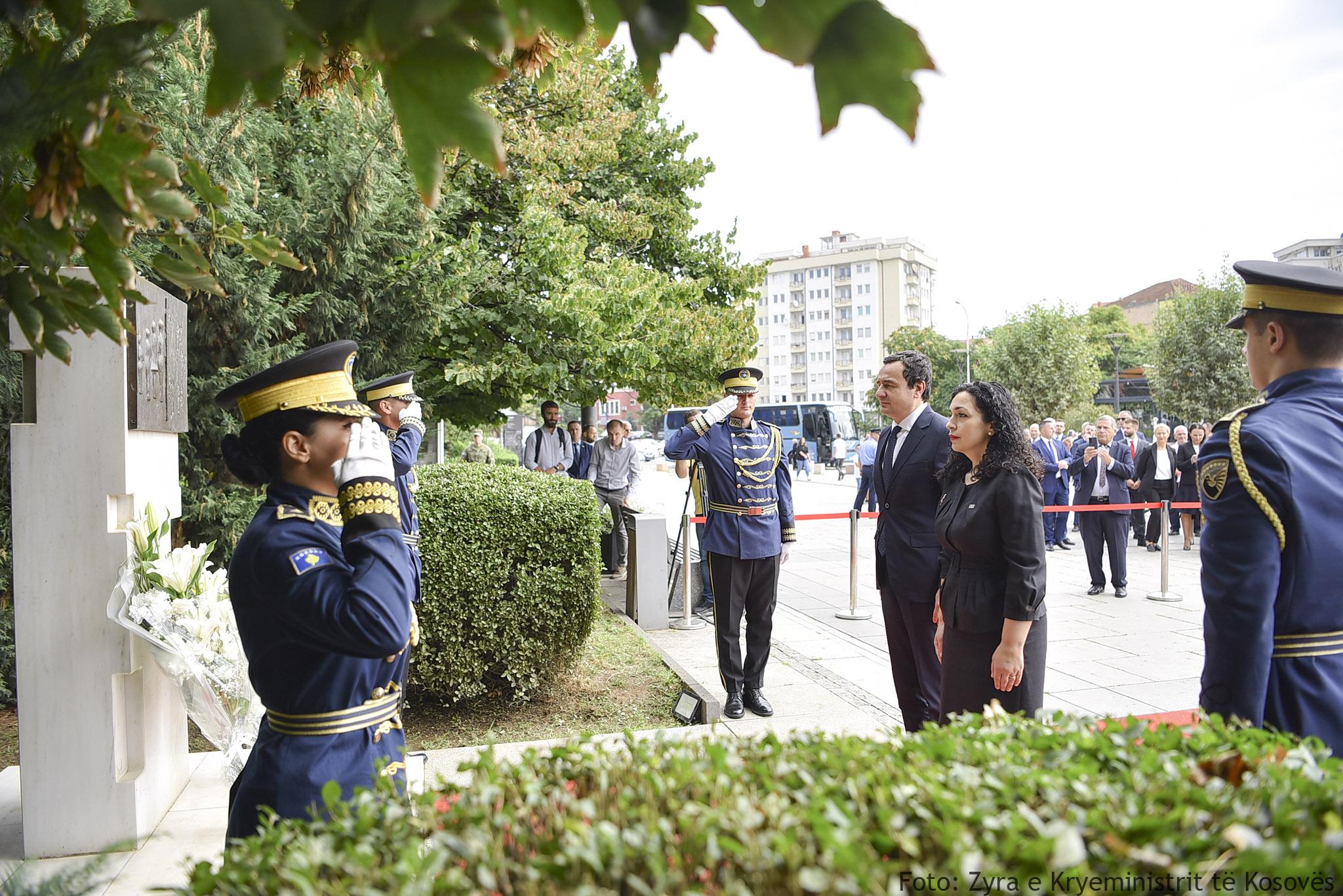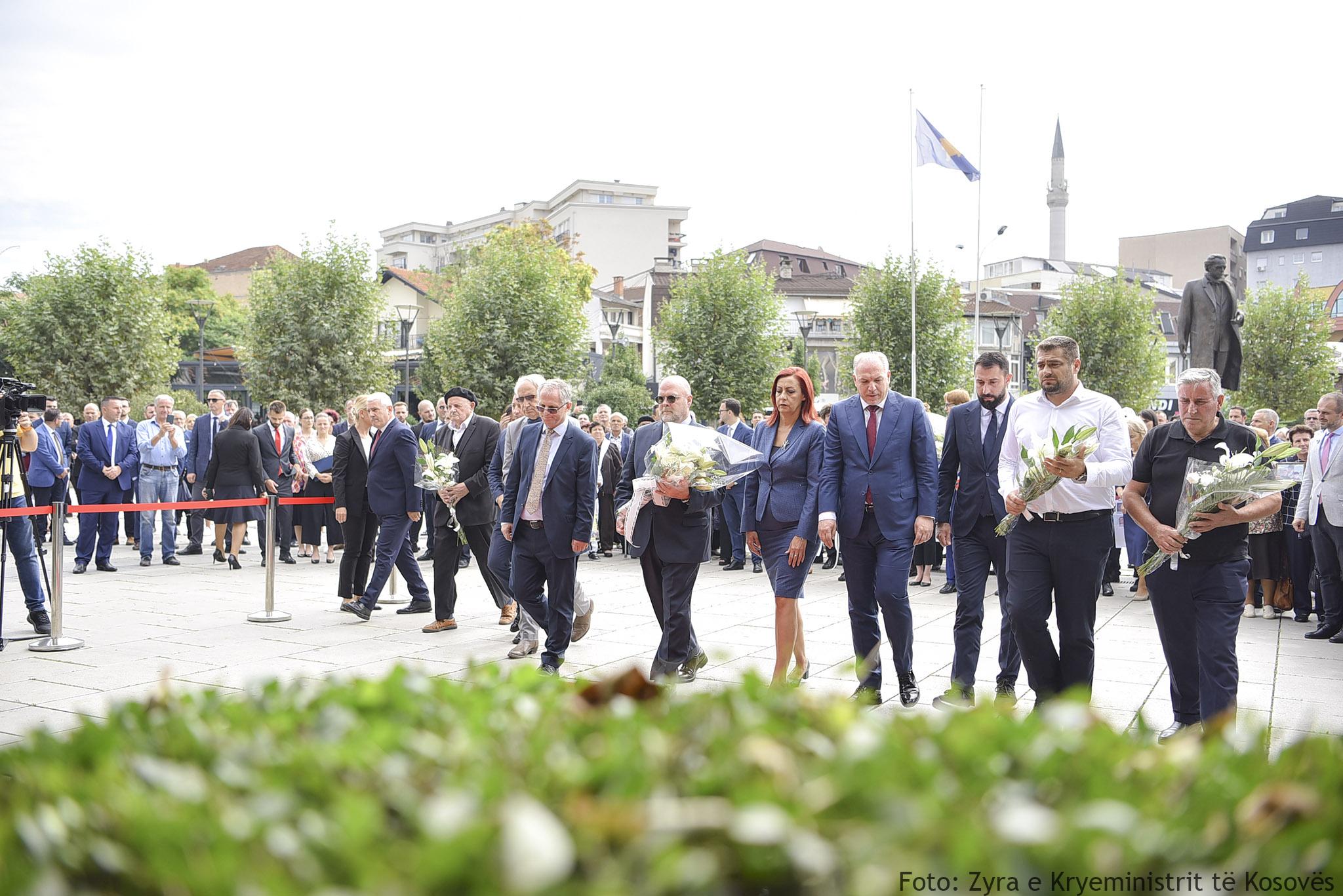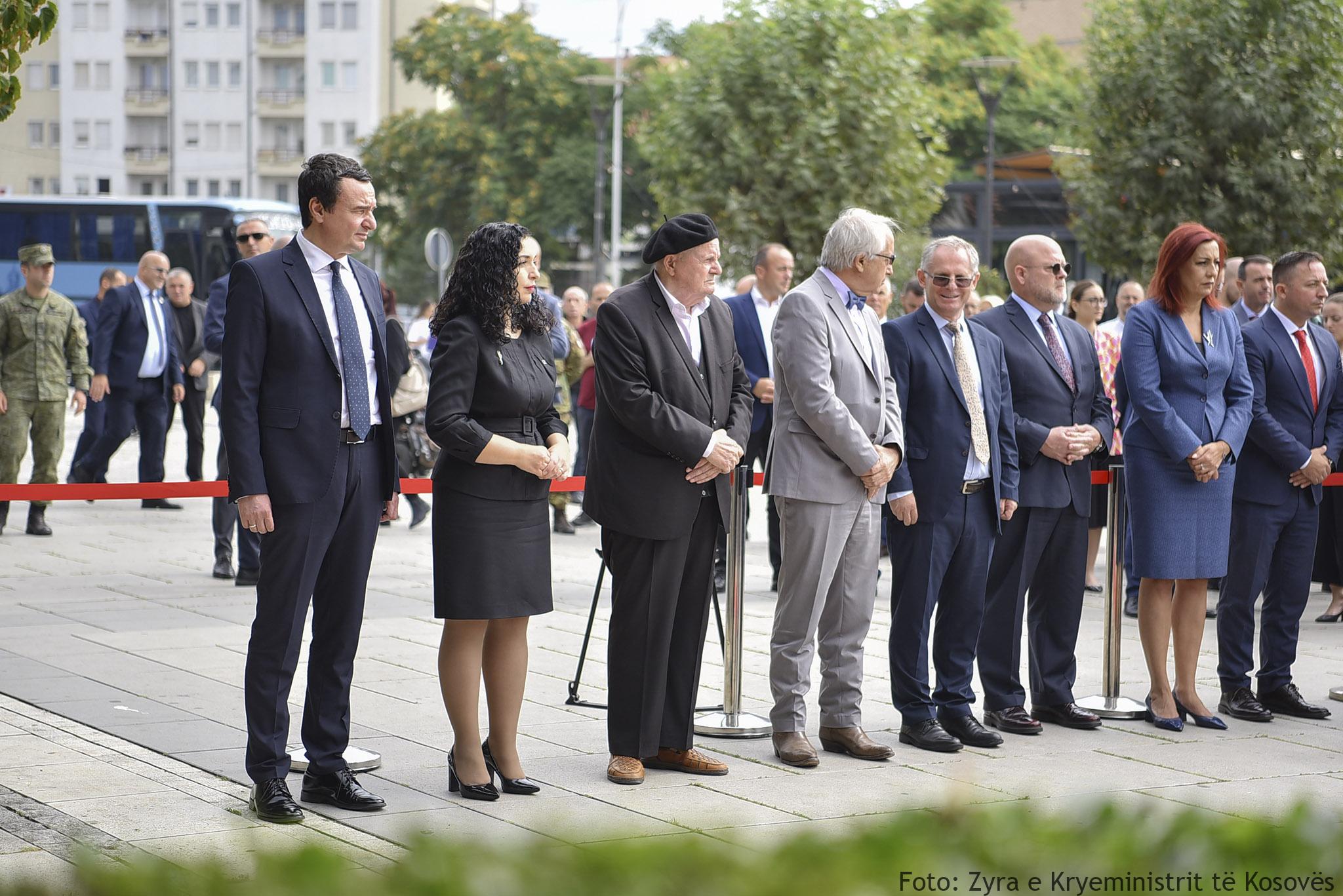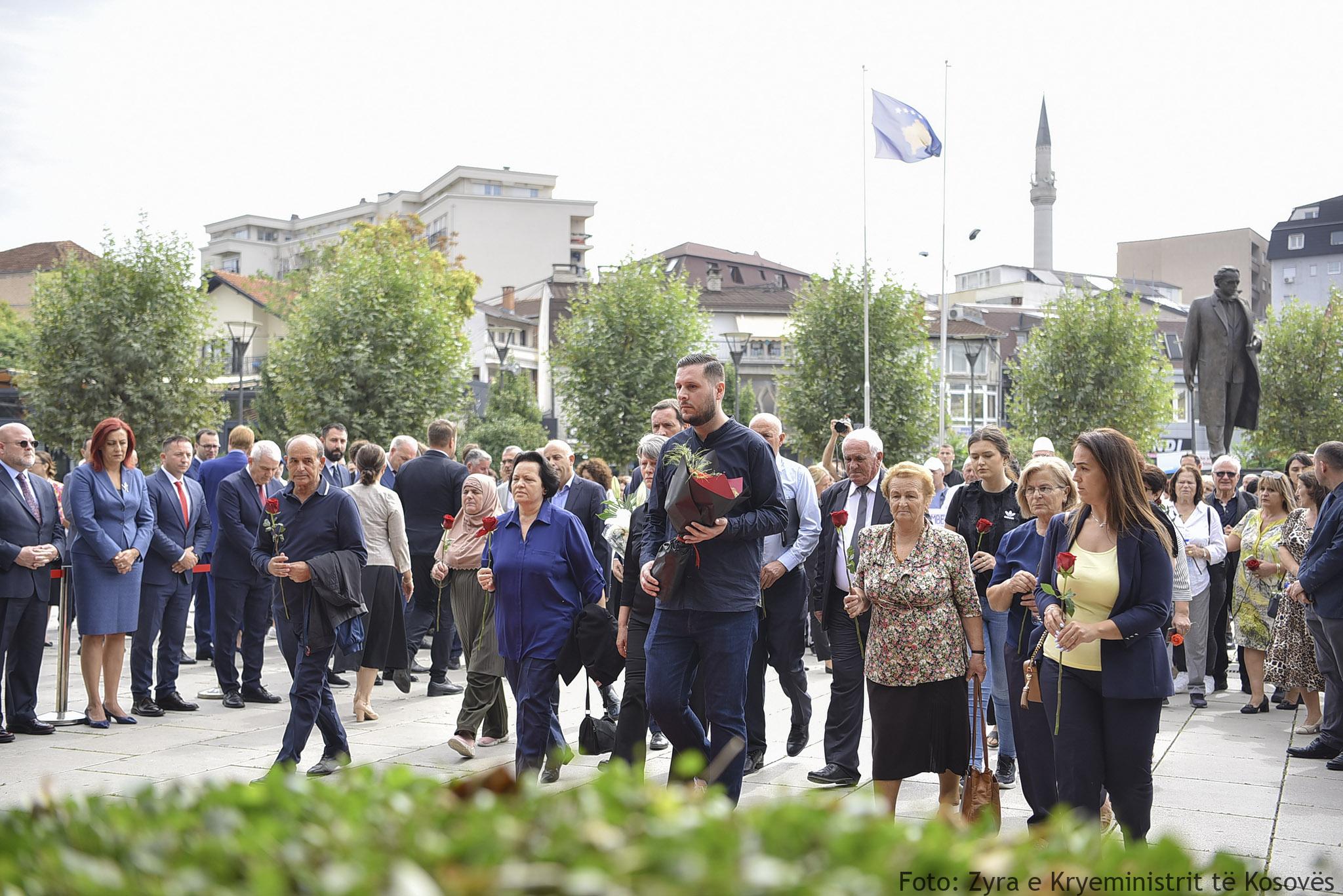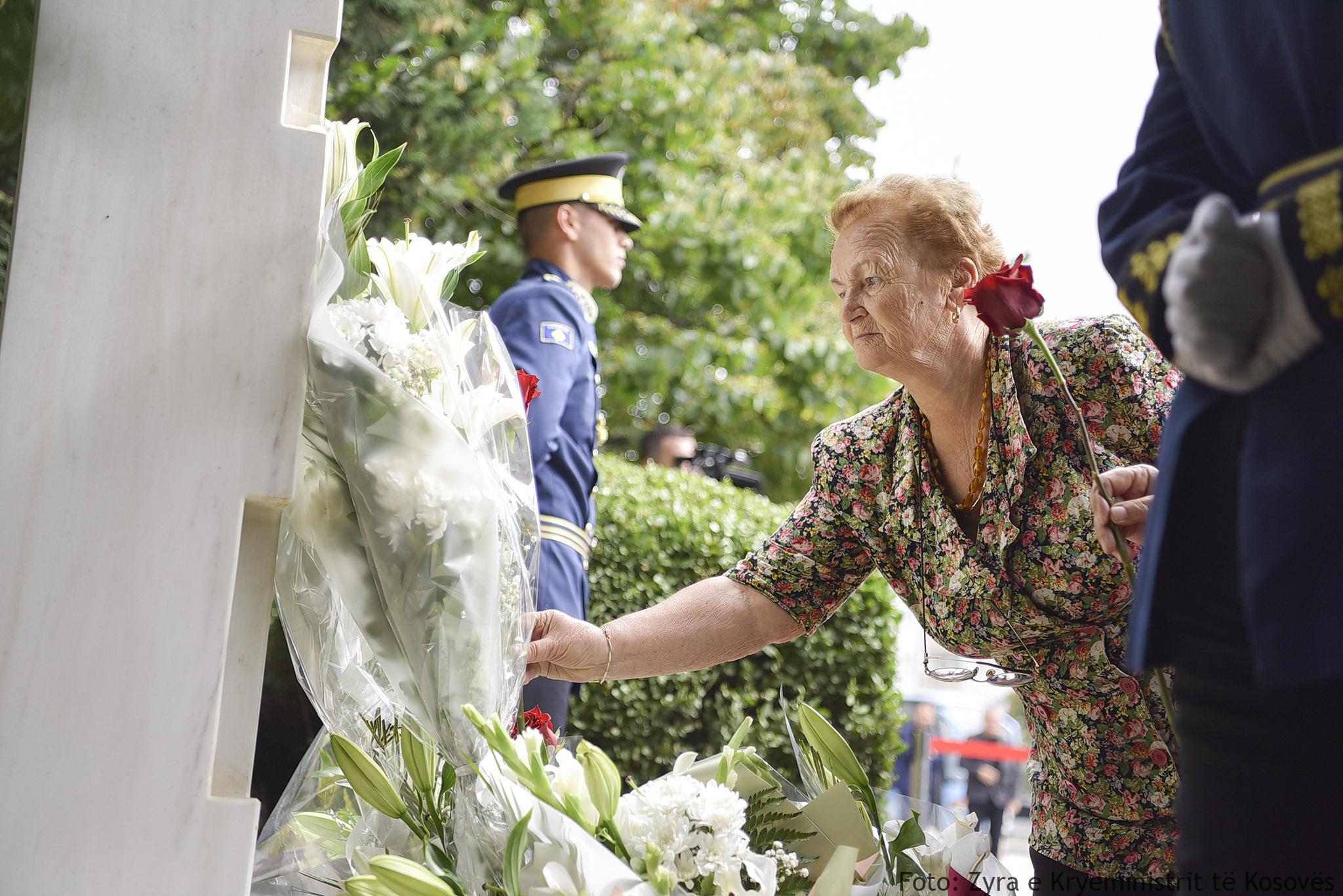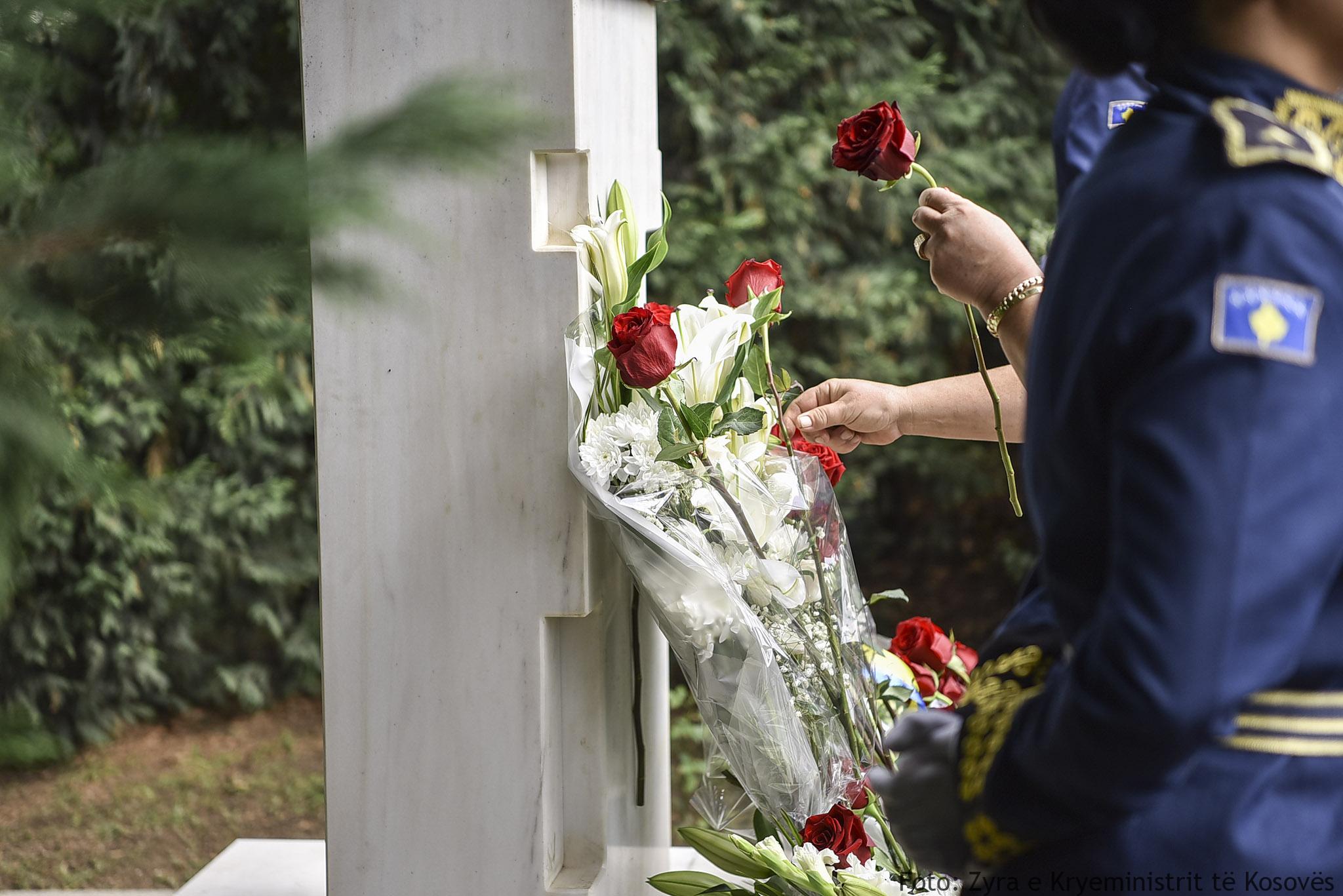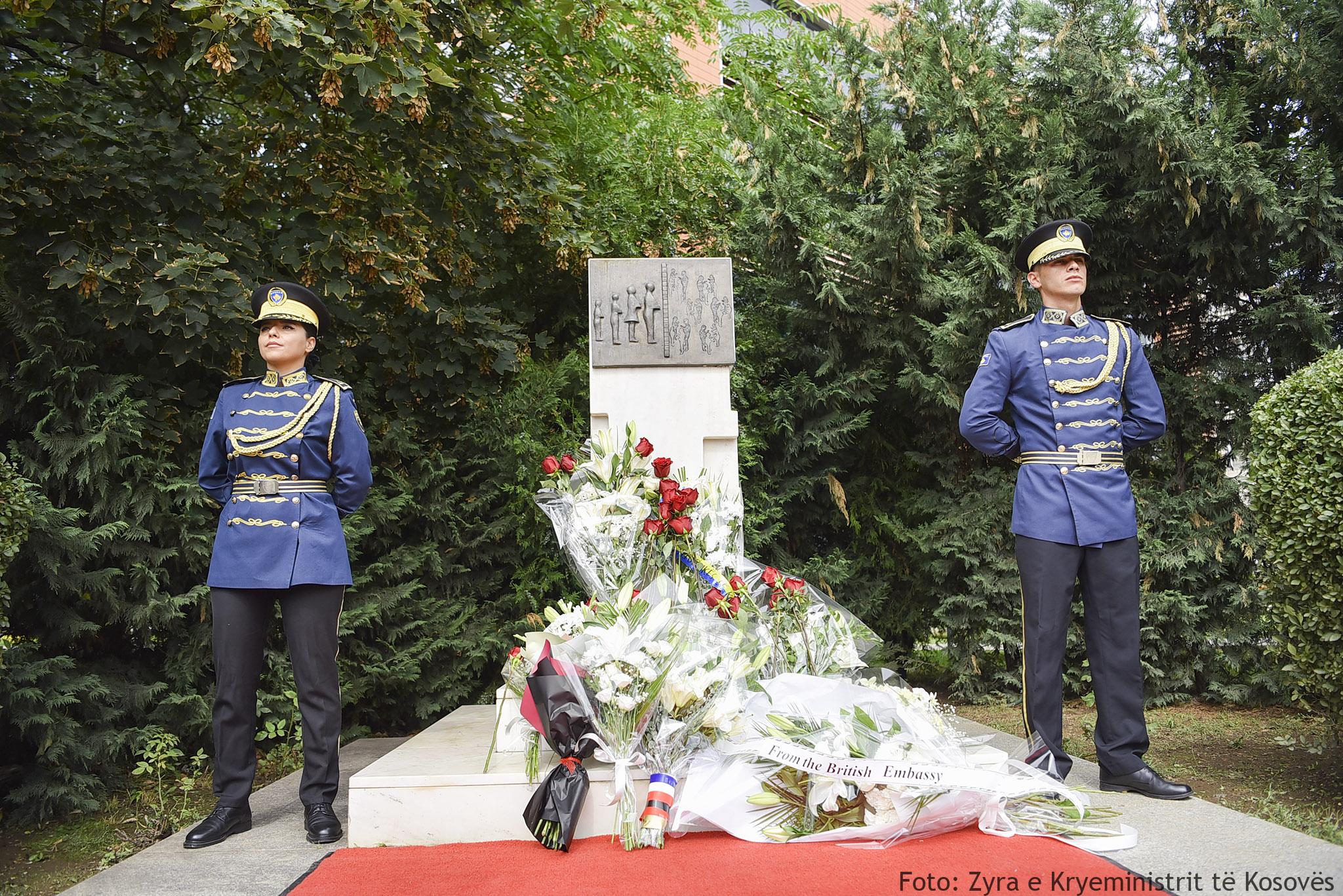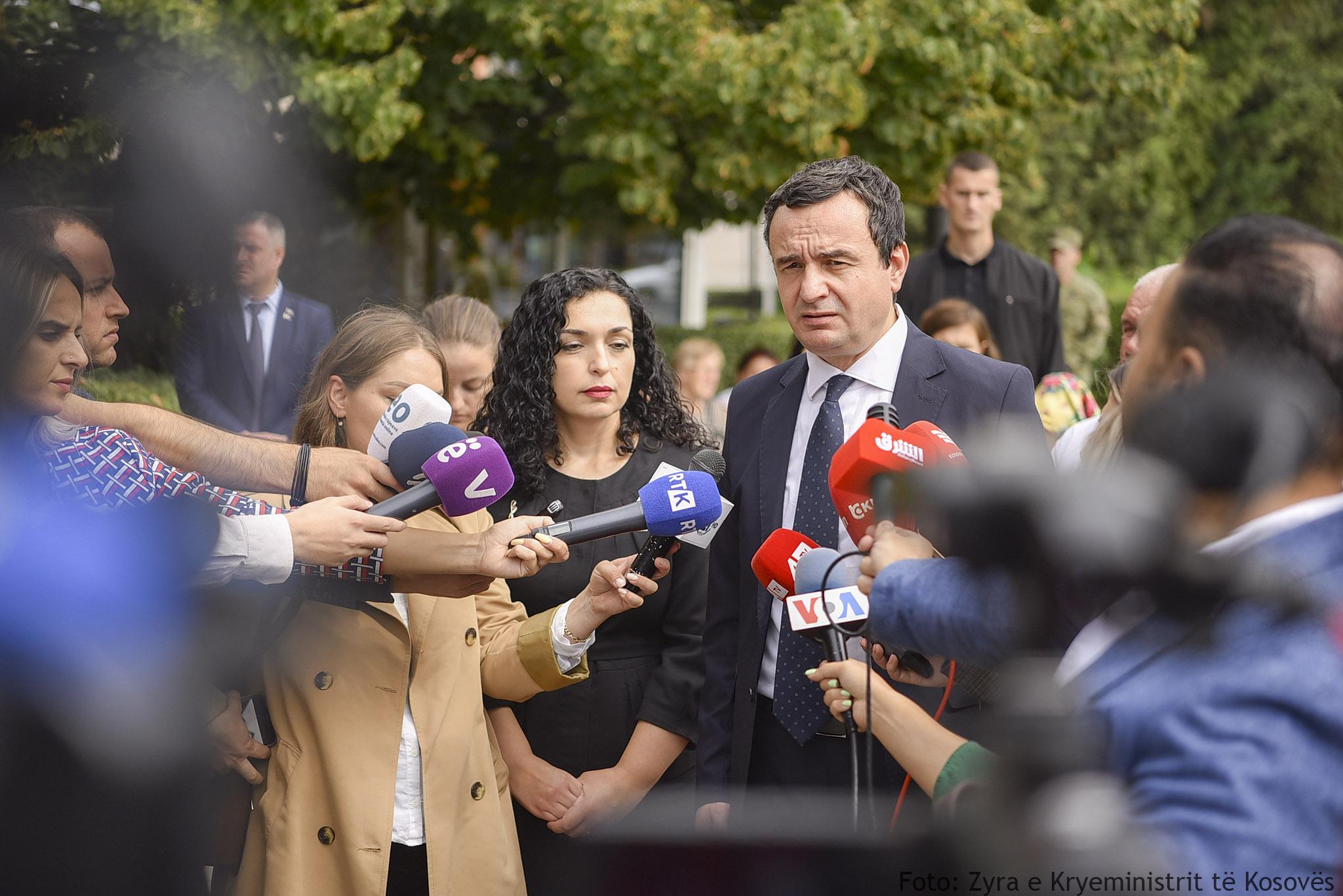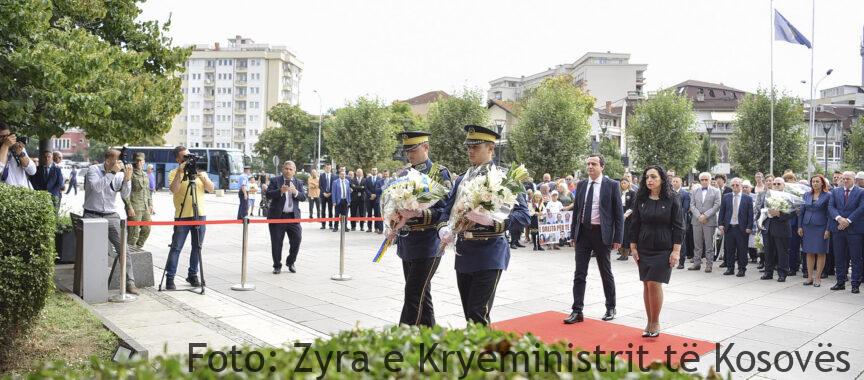Prishtina, 30 August 2022
On the International Day of the Persons of Enforced Disappearances, the Prime Minister of the Republic of Kosovo, Albin Kurti, together with the President of the Republic of Kosovo, Vjosa Osmani Sadriu, paid tribute and placed flowers at the memorial dedicated to those forcibly disappeared during the war in Kosovo, in the courtyard of the Assembly of the Republic of Kosovo.
We condemn every day with our institutional activity, with our state positions, the genocide of Serbia in Kosovo. And one of the wildest, most painful expressions, which has caused us a lot of suffering, loss and anxiety, of the genocide of Serbia in Kosovo, are the missing, the forcibly disappeared, who continue to remain an open wound for our country and our society, said Prime Minister Kurti.
In the joint tributes with the families of the missing, Coordinating Council of the Association of Families of Missing Persons in Kosovo, Government Commission for Missing Persons, representatives of diplomatic missions in Kosovo, and other local and international organizations, Prime Minister Kurti emphasized the institutional responsibility.
As institutions, we have the responsibility to do everything we can and know, so that the fate of those 1,617 missing persons is clarified as soon as possible, and at the same time, together with international factors, we put pressure on Belgrade to open the archives and the truth to be known for our loved ones, he said.
In addition to opening the archives, the prime minister said that at the same time the prosecution in our country should be much more active, the judiciary much more efficient, because the truth can be reached through justice, through the search for responsibility from those who killed them, buried them, exhumed them, sent them to Serbia, buried them there and then exhumed them in those five mass graves, which maybe there are even more than that. 950 Albanians were exhumed from the mass graves of Batajnica, Kizhevak, Rudnica, Bajnabashta and Petrovosello and Perucac.
Prime Minister emphasized the commitment of the Government of the Republic of Kosovo to reveal the truth about 1617 people, whose fate is unknown. Among these 1,617 forcibly disappeared, the vast majority are Albanians, but there are also those who are not Albanians, and we are committed to clarifying the fate of all, regardless of ethnicity, he said.
On this occasion, Prime Minister Kurti invited citizens, who know, have information, to make it public, stressing that in addition to opening the archives in Belgrade, citizens in Serbia, and not only there, should help by speaking out of what they know about it.
Prime Minister Kurti’s full pronunciation:
Together with the President of the Republic, Mrs. Vjosa Osmani Sadriu and the families of the missing, of forcibly disappeared during the war in Kosovo, with colleagues, institutional officials and with international partners and friends from the diplomatic missions here in Kosovo, today we paid tribute to all the missing, the forcibly disappeared, on their International Day.
As institutions, we have the responsibility to do everything we can and know, so that the fate of those 1,617 missing people is clarified as soon as possible, and at the same time, together with international factors, we put pressure on Belgrade to open the archives and the truth to be known for our loved ones.
In addition to opening the archives, at the same time the prosecutor’s office in our country must be much more active, the judiciary much more efficient, because the truth can be reached through justice, through the search for responsibility from those who killed and buried them, they were exhumed, they were sent to Serbia, they were buried there and then they were exhumed in those five mass graves, which may be even more than that.
950 Albanians were exhumed from Batajnica, Kizhevak, Rudnica, Bajnabashta and Petrovosello, Perucac, that is, these are the five large mass graves, from where people were exhumed and surely there are others.
Among these 1,617 forcibly disappeared, there are also non-Albanians. The vast majority are Albanians, but there are also those who are not Albanians, and we are committed to clarifying the fate of everyone, regardless of ethnicity.
On this occasion, I invite the citizens, who know, have information, to make it public.
I believe that in addition to opening the archives in Belgrade, citizens in Serbia should also help by speaking up about what they know. But not only in Serbia. It is necessary for all citizens to speak up about the information they may have.
We condemn every day with our institutional activity, with our state positions, the genocide of Serbia in Kosovo. And one of the wildest, most painful expressions, which has caused us a lot of suffering, loss and anxiety, of the genocide of Serbia in Kosovo, are the missing, the forcibly disappeared, who continue to remain an open wound for our country and our society.
Last modified: August 30, 2022
